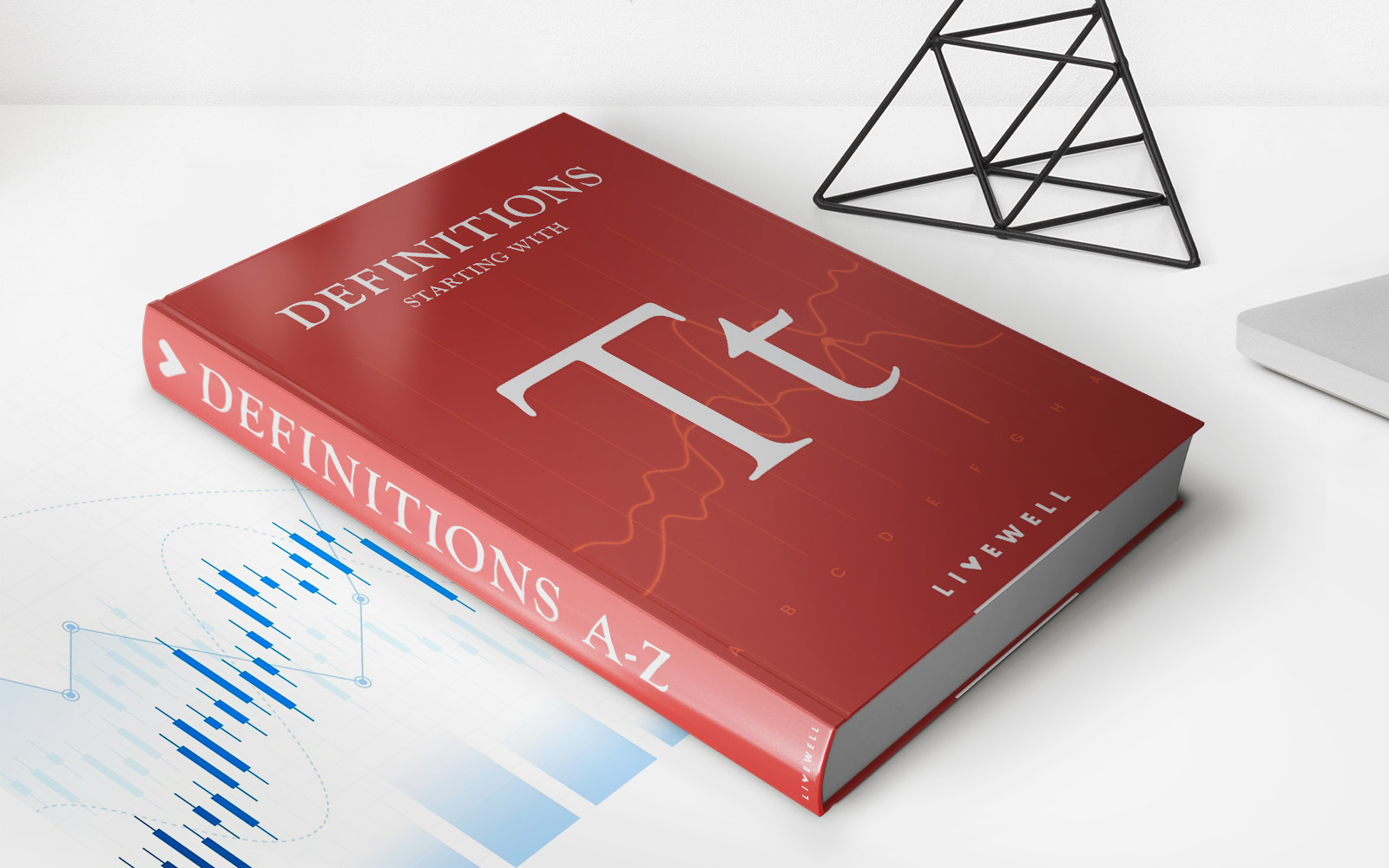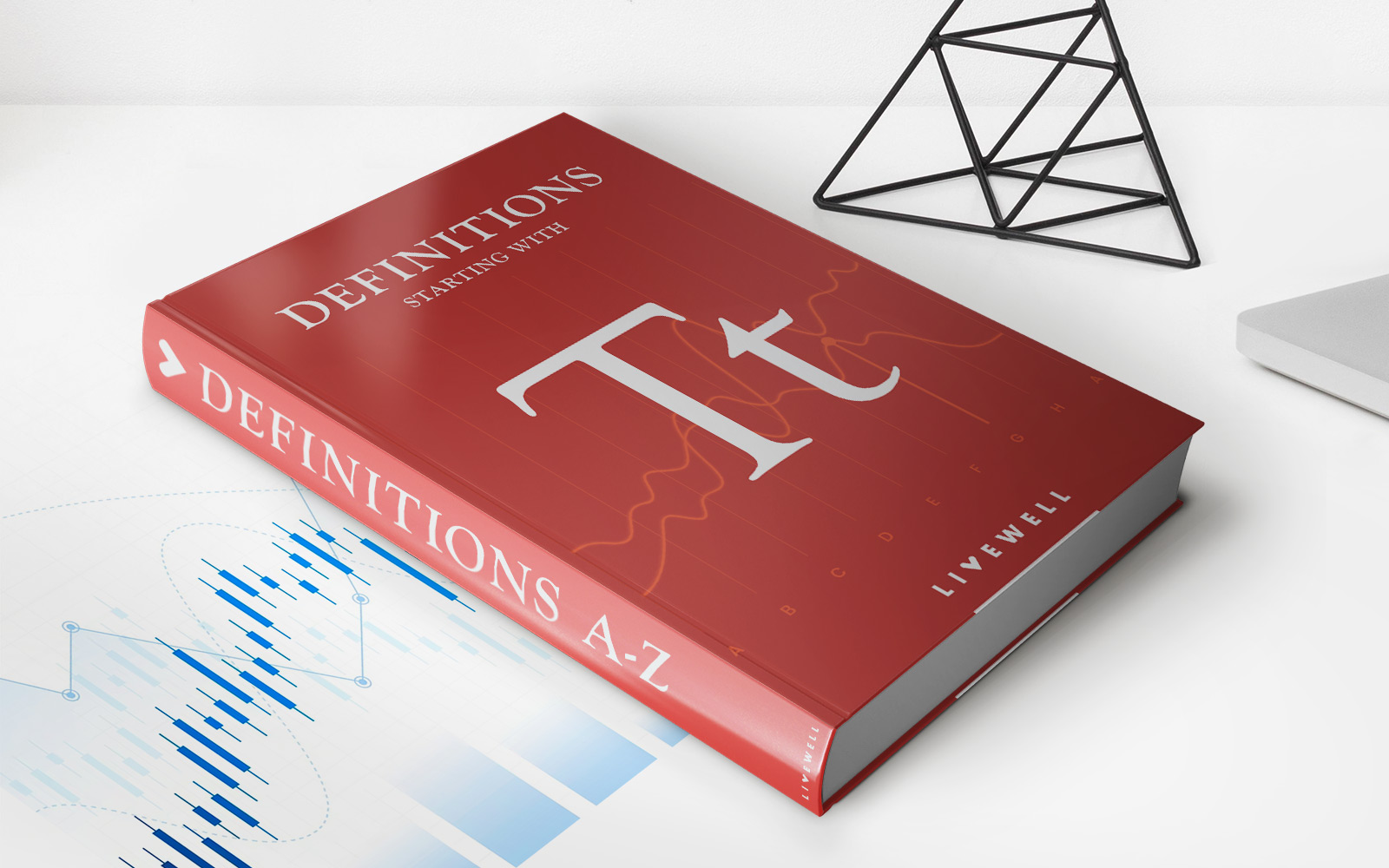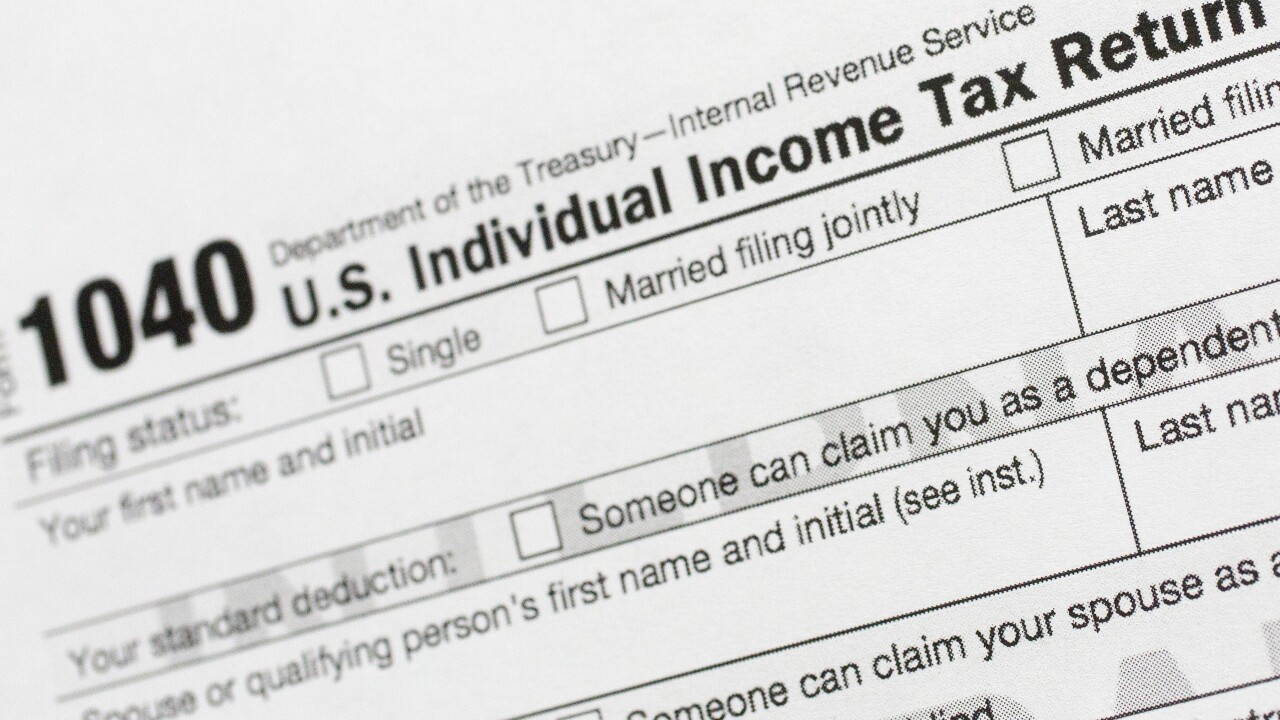

Finance
What Is Accounting Records
Modified: February 21, 2024
Discover the importance of accurate accounting records in finance. Learn how to maintain organized and reliable financial documentation to drive successful financial management.
(Many of the links in this article redirect to a specific reviewed product. Your purchase of these products through affiliate links helps to generate commission for LiveWell, at no extra cost. Learn more)
Table of Contents
- Introduction
- Definition of Accounting Records
- Importance of Accounting Records
- Types of Accounting Records
- Basic Components of Accounting Records
- Purpose of Maintaining Accounting Records
- Legal and Regulatory Requirements for Accounting Records
- Methods of Recording Accounting Transactions
- Common Challenges in Maintaining Accounting Records
- Benefits of Accurate and Updated Accounting Records
- Conclusion
Introduction
Accounting records are the foundation of any financial system. They provide a detailed and organized record of a company’s financial transactions, including purchases, sales, expenses, and income. These records play a crucial role in tracking the financial health of a business, aiding in decision-making, and ensuring compliance with legal and regulatory requirements.
Accurate and up-to-date accounting records are essential for several reasons. They provide a clear picture of a company’s financial performance, allowing business owners and managers to analyze profitability, identify trends, and make informed decisions for future growth. Moreover, these records enable businesses to fulfill their tax obligations, maintain transparency with stakeholders, secure financing, and demonstrate compliance with accounting standards.
There are various types of accounting records, which include general ledgers, cash books, sales journals, purchase journals, and payroll records. Each type serves a specific purpose and contributes to the overall financial record-keeping process. These records can be maintained through manual bookkeeping systems or automated accounting software, depending on the size and complexity of the business.
Maintaining accurate accounting records involves recording all financial transactions as they occur, categorizing them correctly, and ensuring they are properly documented and supported by relevant receipts or invoices. This process is essential for tracking income and expenses, reconciling accounts, and preparing financial statements such as the balance sheet, income statement, and cash flow statement.
In this article, we will explore the concept of accounting records in more detail. We will discuss their importance, the types of records commonly used, the basic components of accounting records, the purpose of maintaining them, and the legal and regulatory requirements surrounding their upkeep. Additionally, we will delve into the methods of recording accounting transactions, the challenges faced in maintaining accurate records, and the benefits of having up-to-date accounting records. Overall, this article aims to provide a comprehensive understanding of accounting records and their significance in the business world.
Definition of Accounting Records
Accounting records refer to the systematic and detailed documentation of a company’s financial transactions, providing a comprehensive record of its financial activities over a specific period. These records serve as a logbook that captures and tracks all monetary inflows and outflows, allowing businesses to maintain accurate financial records and ensure compliance with accounting standards.
The key purpose of accounting records is to provide a clear and transparent account of a company’s financial position. These records contain essential information such as sales revenue, expenses, assets, liabilities, and equity. They reflect the financial health of a business and enable stakeholders to assess its profitability, liquidity, and solvency.
Accounting records are typically maintained using double-entry bookkeeping, a system that records every transaction in at least two accounts: a debit and a credit. This ensures that the accounting equation (assets = liabilities + equity) remains balanced. Debits and credits are recorded in ledgers, which are organized by account classifications such as cash, accounts receivable, accounts payable, and equity.
The level of detail in accounting records can vary depending on the needs of the business and the regulatory requirements. They should include information such as the date of the transaction, the parties involved, a description of the transaction, the amount, and any relevant supporting documentation like invoices or receipts.
Accounting records are typically compiled and maintained by the company’s accounting department or by qualified bookkeepers or accountants. In recent years, the advent of accounting software has streamlined the record-keeping process, allowing businesses to automate certain tasks and reducing the risk of errors or omissions.
In summary, accounting records are the foundation of a company’s financial management. They provide a detailed and systematic record of financial transactions, allowing businesses to monitor their financial performance, meet their reporting obligations, and make informed decisions for future growth. These records play a vital role in ensuring accountability, transparency, and compliance in financial reporting.
Importance of Accounting Records
Accounting records play a critical role in the financial management of a business. They provide a wealth of vital information that helps businesses track their financial performance, make informed decisions, and ensure compliance with legal and regulatory requirements. Here are some key reasons why accounting records are important:
- Financial Performance Analysis: Accounting records serve as a valuable tool for assessing the financial performance of a business. By analyzing the income statements, balance sheets, and cash flow statements derived from these records, businesses can gain insights into their revenue, expenses, profitability, and cash flow. This information enables them to identify areas of strength, pinpoint areas for improvement, and make informed financial decisions.
- Decision-Making: Accurate and up-to-date accounting records provide the data and analysis needed to make informed business decisions. Whether it’s evaluating costs, determining pricing strategies, identifying investment opportunities, or assessing the feasibility of a new project, accounting records offer valuable insights that guide decision-making and enhance business success.
- Tax Compliance: Maintaining proper accounting records is crucial for meeting tax obligations. Accurate records ensure that businesses have the necessary information to calculate accurate tax liabilities, claim eligible deductions, and prepare tax returns. Moreover, organized accounting records make it easier to respond to inquiries from tax authorities and help minimize the risk of tax audits or penalties.
- Monitoring Cash Flow: Accounting records provide a clear picture of a company’s cash inflows and outflows. This is essential for managing cash flow effectively, ensuring that there is sufficient cash on hand to cover expenses, pay suppliers, and meet financial obligations. By monitoring cash flow through accounting records, businesses can identify potential cash shortages and take proactive measures to avoid liquidity problems.
- Stakeholder Accountability: Accounting records provide transparency and accountability to stakeholders, including investors, lenders, and shareholders. These records demonstrate how the company’s financial resources are utilized, safeguarded, and allocated. Clear and accurate accounting records engender trust, maintain stakeholder confidence, and facilitate better relationships with external parties.
In summary, accounting records are of utmost importance to businesses. They serve as a valuable source of financial information for analyzing performance, making informed decisions, complying with tax obligations, managing cash flow, and maintaining stakeholder trust. By investing in the proper maintenance and accuracy of accounting records, businesses can gain a competitive advantage and ensure their long-term financial success.
Types of Accounting Records
Accounting records encompass a wide range of documents and accounts that track a company’s financial transactions. These records are categorized into different types depending on their purpose and the nature of the transactions being recorded. Here are some common types of accounting records:
- General Ledger: The general ledger is the central repository of all financial transactions for a business. It includes accounts such as assets, liabilities, equity, revenue, and expenses. Each account is updated with entries that reflect the debits and credits for each transaction. The general ledger provides a comprehensive view of a company’s financial position and is used to prepare financial statements.
- Cash Book: The cash book records all cash inflows and outflows of a business. It includes details of cash receipts, such as cash sales, customer payments, and loans received, as well as cash payments, such as supplier payments, expenses, and withdrawals. The cash book provides a real-time record of a company’s cash position and is an essential tool for managing cash flow.
- Sales Journal: The sales journal records all credit sales made by a business. It includes details such as the date of sale, the customer’s name, the amount of the sale, and the account to be credited. The sales journal helps track sales revenue, monitor customer transactions, and facilitate the preparation of invoices and customer statements.
- Purchase Journal: The purchase journal records all credit purchases made by a business. It includes details such as the date of purchase, the supplier’s name, the amount of the purchase, and the account to be debited. The purchase journal helps track expenses, monitor supplier transactions, and streamline the accounts payable process.
- Payroll Records: Payroll records track employee compensation, including wages, salaries, bonuses, and deductions. These records typically include information such as employee details, hours worked, pay rates, tax withholdings, and other employee benefits. Payroll records are essential for accurate payroll processing, tax compliance, and financial reporting.
In addition to these specific types of accounting records, other supporting documents and accounts include accounts receivable, accounts payable, inventory records, bank statements, and fixed asset registers. Each of these records serves a specific purpose in tracking and managing different aspects of a company’s financial activities.
It is worth noting that with advancements in technology, many businesses now use cloud-based accounting software to automate the recording and management of accounting records. These software solutions offer features such as real-time recording, automatic calculations, and seamless integration with other financial systems, significantly streamlining the record-keeping process.
Overall, the various types of accounting records work together to provide a comprehensive and accurate picture of a company’s financial transactions and position. These records are essential for financial management, decision-making, compliance, and maintaining transparency with stakeholders.
Basic Components of Accounting Records
Accounting records consist of various components that collectively form a comprehensive and organized system for tracking and documenting a company’s financial transactions. These components are critical for maintaining accurate and reliable accounting records. Here are the basic components of accounting records:
- Chart of Accounts: The chart of accounts is a fundamental component of accounting records. It is a categorized list of all the accounts used by a company to record its financial transactions. Each account is assigned a unique code or number for easy identification and classification. The chart of accounts provides a structure that allows transactions to be accurately recorded and organized.
- Source Documents: Source documents are the original records that provide evidence of a financial transaction. They include invoices, receipts, purchase orders, bank statements, and payroll records. Source documents provide crucial details such as the date, amount, parties involved, and a description of the transaction. These documents serve as supporting evidence for the entries made in the accounting records.
- Journals: Journals are used to record transactions before they are posted to the general ledger. There are different types of journals, such as the sales journal, purchase journal, cash receipts journal, and cash disbursements journal. Each journal is used to collect and organize specific types of transactions for efficient recording and future reference.
- General Ledger: The general ledger is the primary component of accounting records and serves as the main repository for all financial transactions. It consists of individual accounts where transactions are recorded as debits and credits. The general ledger provides a holistic view of a company’s financial position and is used to generate financial statements.
- Financial Statements: Financial statements are a summary of a company’s financial performance and position. The three main financial statements are the balance sheet, income statement, and cash flow statement. These statements are derived from the accounting records and provide valuable information for assessing profitability, liquidity, and overall financial health.
- Reconciliations: Reconciliations play a crucial role in ensuring the accuracy and integrity of accounting records. Bank reconciliations involve comparing the balances in the accounting records with those in the bank statements to identify and resolve any discrepancies. Similarly, other account reconciliations, such as accounts receivable and accounts payable reconciliations, are performed to ensure the accuracy of balances.
These basic components work together to form a robust system for recording, organizing, and reporting a company’s financial transactions. By maintaining accurate accounting records and regularly reviewing these components, businesses can ensure financial transparency, make informed decisions, and comply with regulatory requirements.
Purpose of Maintaining Accounting Records
Maintaining accurate and up-to-date accounting records is crucial for businesses of all sizes and industries. Accounting records serve several important purposes that contribute to the financial management and success of a company. Here are the key purposes of maintaining accounting records:
- Financial Analysis: Accounting records provide valuable data that allows businesses to analyze their financial performance. By examining income statements, balance sheets, and cash flow statements derived from accounting records, businesses can assess their revenue, expenses, profitability, and cash flow. This information is essential for identifying trends, evaluating financial health, and making informed decisions regarding budgeting, cost control, and revenue growth.
- Decision-Making: Accurate accounting records provide the necessary information for making informed business decisions. Whether it involves determining pricing strategies, evaluating investment opportunities, or assessing the feasibility of a new project, accounting records offer insights that guide decision-making. Timely and reliable data from accounting records empowers business owners and managers to make strategic decisions that drive growth and mitigate risks.
- Compliance: Maintaining accounting records ensures compliance with legal and regulatory requirements. By accurately recording and tracking financial transactions, businesses can fulfill their tax obligations, adhere to accounting standards, and meet reporting requirements mandated by government agencies or industry regulators. Properly documented accounting records also facilitate audits and demonstrate transparency to stakeholders.
- Financial Reporting: Accounting records are the foundation for preparing accurate financial statements. These statements, such as the balance sheet, income statement, and cash flow statement, provide a snapshot of a company’s financial position. Properly maintained accounting records ensure the integrity of financial reporting, allowing businesses to communicate information about their performance and financial health to stakeholders, such as investors, creditors, and shareholders.
- Evidence and Documentation: Accounting records serve as a vital source of evidence and documentation in case of disputes, legal proceedings, or audits. Maintaining accurate and complete records provides a strong foundation for supporting claims, validating transactions, and resolving any discrepancies that may arise. Reliable accounting records not only protect the interests of the business but also ensure transparency and accountability.
- Planning and Forecasting: Accurate accounting records provide the historical data needed for effective planning and forecasting. By analyzing past financial trends and patterns, businesses can identify areas of strength and weakness, anticipate future needs, and develop realistic budgets and financial projections. This information is essential for setting goals, allocating resources, and monitoring progress towards achieving financial objectives.
In summary, the purpose of maintaining accounting records is multifaceted. Accurate and up-to-date records facilitate financial analysis, aid decision-making, ensure compliance, support financial reporting, provide evidence and documentation, and enable effective planning and forecasting. By prioritizing the maintenance of accounting records, businesses can enhance financial management, promote transparency, and build a solid foundation for long-term success.
Legal and Regulatory Requirements for Accounting Records
Maintaining proper accounting records is not only essential for effective financial management but also for compliance with legal and regulatory requirements. Businesses are subject to various laws and regulations that govern how accounting records should be maintained. Here are some key legal and regulatory requirements for accounting records:
- Generally Accepted Accounting Principles (GAAP): GAAP is a set of accounting principles and standards that provide guidelines for financial reporting. It ensures consistency, comparability, and transparency in financial statements. By following GAAP, businesses can ensure that their accounting records accurately reflect their financial position and performance. GAAP compliance is particularly important for publicly traded companies, as they must adhere to these principles to provide reliable and relevant financial information to investors and regulatory bodies.
- International Financial Reporting Standards (IFRS): IFRS is a globally recognized set of accounting standards used by many countries. It aims to harmonize accounting practices and improve the quality and transparency of financial reporting. Businesses operating in countries where IFRS is mandated must maintain accounting records that comply with these standards.
- Tax Laws and Regulations: Businesses are required to maintain accounting records that accurately reflect their income, expenses, and other financial transactions for tax purposes. Tax laws and regulations vary by jurisdiction, and failure to comply with these regulations can result in penalties, fines, or audits. Maintaining accurate and well-documented accounting records ensures businesses can fulfill their tax obligations and provide supporting evidence as needed.
- Sarbanes-Oxley Act (SOX): SOX is a U.S. federal law that sets requirements for financial reporting and corporate governance. It aims to protect investors and maintain the integrity of financial systems. SOX imposes strict rules on the maintenance, accuracy, and retention of accounting records. It requires companies to establish internal controls, perform regular audits, and disclose any material weaknesses in their financial reporting processes.
- Industry-specific Regulations: Certain industries or sectors may have additional accounting requirements specific to their operations. For example, financial institutions may be subject to regulations from regulatory bodies such as the Securities and Exchange Commission (SEC) or the Financial Accounting Standards Board (FASB). These regulations may include guidelines for specific accounting treatments, reporting requirements, or disclosure standards.
- Record Retention: Many jurisdictions have specific requirements for the retention of accounting records. These requirements may vary depending on the type of document and the applicable laws. It is important for businesses to retain accounting records for the required period, as failure to do so may result in legal consequences or difficulties in the event of an audit or legal dispute.
Meeting these legal and regulatory requirements is essential to ensure compliance and avoid penalties or legal consequences. By maintaining accurate and well-documented accounting records that adhere to the applicable laws and regulations, businesses can demonstrate transparency, facilitate audits, and provide reliable financial information to stakeholders.
Methods of Recording Accounting Transactions
Recording accounting transactions is a crucial aspect of maintaining accurate and reliable accounting records. There are various methods available to businesses for recording these transactions. The choice of method depends on the size of the business, the volume of transactions, and the complexity of the financial operations. Here are some common methods of recording accounting transactions:
- Manual Bookkeeping: Manual bookkeeping is the traditional method of recording accounting transactions using physical journals, ledgers, and paper-based documents. In this method, each transaction is manually entered into the relevant journal and then transferred to the general ledger. While manual bookkeeping requires meticulous attention to detail, it can be suitable for small businesses with a relatively low volume of transactions.
- Electronic Spreadsheets: Electronic spreadsheets, such as Microsoft Excel or Google Sheets, are commonly used for recording accounting transactions. They offer the advantage of easy data entry, calculations, and sorting capabilities. Many businesses create customized spreadsheets with predefined formulas to automate calculations, generate reports, and organize data. However, electronic spreadsheets may lack the security and audit trail features of dedicated accounting software.
- Accounting Software: Accounting software provides a digital solution for recording and managing accounting transactions. There are various accounting software options available, ranging from basic entry-level systems to robust enterprise-level solutions. These software packages automate many aspects of accounting, including transaction recording, journal entries, general ledger updates, and financial reporting. They offer features such as bank reconciliation, inventory management, and integration with other business systems.
- Cloud-Based Accounting Platforms: Cloud-based accounting platforms have gained popularity in recent years. These platforms offer the convenience of accessing accounting records and performing accounting tasks from anywhere, using any internet-connected device. Cloud-based accounting systems provide automated data backup, enhanced security, and real-time collaboration features. Many platforms also integrate with other business tools, simplifying workflows and providing a comprehensive financial management solution.
- Point of Sale (POS) Systems: Retail businesses often use POS systems that combine sales transactions and inventory management. These systems automatically record sales transactions and update inventory levels in real-time. They can also generate financial reports summarizing sales, revenue, and inventory data.
Regardless of the method used, it is important to establish proper controls and procedures to ensure the accuracy and integrity of recorded transactions. This includes maintaining supporting documentation, implementing segregation of duties, and regularly reviewing and reconciling accounts. Additionally, businesses should consider factors such as scalability, ease of use, reporting capabilities, and integration with other business systems when selecting a recording method.
It is worth noting that as technology advances, more businesses are transitioning from manual or spreadsheet-based methods to automated accounting software or cloud-based platforms. These solutions offer improved efficiency, accuracy, and data security, while reducing the risk of human error.
Selecting the most appropriate method for recording accounting transactions depends on the specific needs and requirements of the business. It is essential to choose a method that suits the business’s size, complexity, and future growth plans, ensuring that reliable and accurate accounting records are maintained.
Common Challenges in Maintaining Accounting Records
Maintaining accurate and reliable accounting records is crucial for businesses, but it can also present several challenges. These challenges can arise due to various factors, including human error, technological limitations, and changing regulatory requirements. Here are some common challenges businesses may face in maintaining accounting records:
- Data Entry Errors: Manual data entry is prone to errors, such as transposing numbers, recording incorrect amounts, or omitting transactions. These errors can lead to inaccuracies in accounting records, affecting financial reporting and decision-making. To mitigate this challenge, businesses can implement data validation measures, utilize automated data entry tools, and establish rigorous review processes to catch and correct errors.
- Complex Transactions: Some businesses handle complex transactions that require specialized accounting treatment. Examples include mergers and acquisitions, foreign currency transactions, and complex revenue recognition methods. Properly recording and accounting for these transactions can be challenging, as they often involve multiple stakeholders, complex financial arrangements, and compliance with specific accounting standards. Consulting with accounting professionals or implementing accounting software with built-in capabilities for handling complex transactions can help businesses overcome this challenge.
- Technological Limitations: Outdated or inadequate accounting systems can hinder the efficient maintenance of accounting records. Legacy systems may lack essential features or integrations, making it difficult to record transactions accurately, generate reports, or ensure data security. Investing in modern accounting software or cloud-based platforms that align with the business’s needs can help overcome these limitations and improve the accuracy and efficiency of recording and maintaining accounting records.
- Keeping Pace with Regulatory Changes: Accounting standards and regulations are continually evolving. Keeping up with these changes and ensuring compliance can be a challenge for businesses. Failure to comply with regulatory requirements can result in penalties, fines, or legal consequences. Businesses need to stay informed about changes in accounting standards and ensure their accounting records and reporting practices align with the latest regulations. Regular training and engaging with accounting professionals or consultants can help businesses navigate regulatory changes effectively.
- Record Retention and Storage: Businesses are often required to retain accounting records for a specified period. Managing and storing these records, especially in physical form, can be challenging and space-consuming. As digital documentation becomes more prevalent, businesses can explore electronic record storage solutions or cloud-based document management systems. Implementing proper record management practices and regularly reviewing and disposing of obsolete records can help overcome this challenge.
- Segregation of Duties: Maintaining proper segregation of duties is crucial for preventing fraudulent activities and ensuring the accuracy of accounting records. However, in smaller organizations with limited resources, it can be challenging to have adequate segregation of duties. Businesses should implement internal control measures, such as dual authorization for significant transactions, periodic reviews, and proper oversight, to mitigate the risk associated with limited segregation of duties.
Overcoming these challenges requires a proactive approach and a commitment to maintaining high standards of accuracy and compliance. It is essential for businesses to continuously assess their record-keeping processes, invest in appropriate technology, provide ongoing training to staff, and seek professional guidance when needed. By addressing these challenges, businesses can ensure the integrity of their accounting records and enhance financial management and reporting.
Benefits of Accurate and Updated Accounting Records
Accurate and updated accounting records are essential for the financial success and stability of a business. They provide numerous benefits that enable effective financial management, informed decision-making, and regulatory compliance. Here are the key benefits of maintaining accurate and updated accounting records:
- Financial Analysis: Accurate accounting records serve as a foundation for financial analysis. They provide insights into a company’s revenue, expenses, profitability, and cash flow. By analyzing financial statements derived from accounting records, businesses can identify trends, assess performance, and make informed decisions regarding cost management, revenue growth, and investment opportunities.
- Business Planning: Accurate accounting records help businesses plan for the future. They provide the necessary data to develop realistic budgets, forecast financial performance, and set achievable goals. With reliable accounting records, businesses can align their resources, anticipate cash flow needs, and make strategic decisions to drive growth and profitability.
- Tax Compliance: Accurate accounting records ensure businesses can comply with tax laws and regulations. These records provide the basis for calculating tax liabilities, claiming eligible deductions, and preparing tax returns. By maintaining accurate and up-to-date accounting records, businesses can minimize the risk of errors in tax calculations and respond effectively to tax audits or inquiries from tax authorities.
- Financial Reporting: Updated accounting records are vital for preparing accurate financial statements. These statements, including the balance sheet, income statement, and cash flow statement, provide a snapshot of a company’s financial performance and position. Accurate financial reporting enhances transparency, facilitates stakeholder communication, and builds trust with investors, lenders, and other stakeholders.
- Decision-Making: Accurate accounting records provide the information necessary for informed decision-making. When faced with important business choices, such as pricing strategies, investment decisions, or expansions, businesses can rely on accurate financial data derived from accounting records to evaluate options, assess risks, and make well-informed decisions.
- Efficient Audit and Compliance: Accurate accounting records facilitate the audit process, both internal and external. When accounting records are accurate and well-organized, audits can be performed more efficiently, resulting in time and cost savings. Additionally, maintaining accurate records ensures compliance with legal and regulatory requirements, reducing the risk of penalties, fines, or legal consequences.
- Financial Security and Control: Accurate accounting records provide businesses with a clear understanding of their financial position and foster financial security and control. They enable effective monitoring of cash flow, receivables, and payables, minimizing the risk of fraud, errors, or financial mismanagement. By maintaining accurate records, businesses can identify potential issues early, take appropriate corrective actions, and safeguard their financial stability.
In summary, accurate and updated accounting records provide invaluable benefits to businesses. From financial analysis and planning to compliance and decision-making, these records serve as a reliable source of financial information. Businesses that prioritize maintaining accurate accounting records position themselves for financial success, regulatory compliance, and informed decision-making.
Conclusion
Accounting records are the backbone of a company’s financial management. They provide a comprehensive and organized record of a business’s financial transactions, helping to track financial performance, inform decision-making, and ensure compliance with legal and regulatory requirements. Maintaining accurate and updated accounting records is crucial for businesses of all sizes and industries.
In this article, we explored various aspects of accounting records, including their definition, importance, types, basic components, and the purpose of maintaining them. We discussed the legal and regulatory requirements businesses must adhere to when it comes to accounting records, as well as the methods available for recording transactions. We also examined the common challenges businesses may encounter in maintaining accounting records, and the benefits of accurate and up-to-date records.
The benefits of accurate accounting records are numerous. They enable businesses to analyze financial performance, make informed decisions, comply with tax laws and regulations, and communicate transparently with stakeholders through accurate financial reporting. Accurate records also facilitate efficient audits, improve financial control, and provide a foundation for effective business planning and forecasting.
Despite the challenges that may arise, businesses must prioritize the maintenance of accurate accounting records. Utilizing appropriate recording methods, adopting modern accounting software or cloud-based platforms, and staying informed about regulatory changes are all key strategies to overcome these challenges.
In conclusion, accurate and updated accounting records are vital for businesses to achieve financial stability, make informed decisions, and comply with legal and regulatory requirements. By investing in the proper maintenance of accounting records, businesses can enhance financial management, improve transparency, and position themselves for long-term success in the dynamic and competitive business environment.














